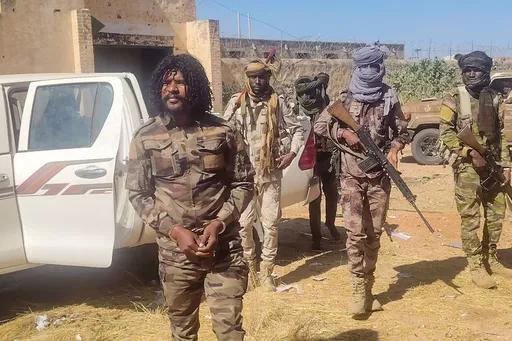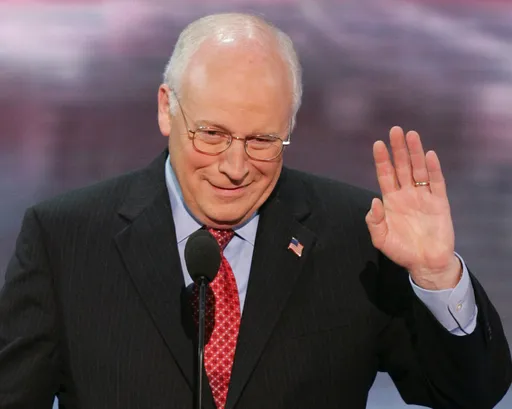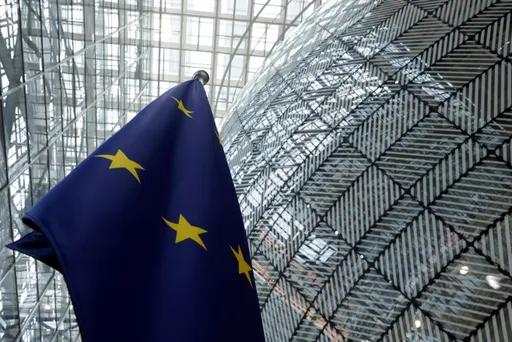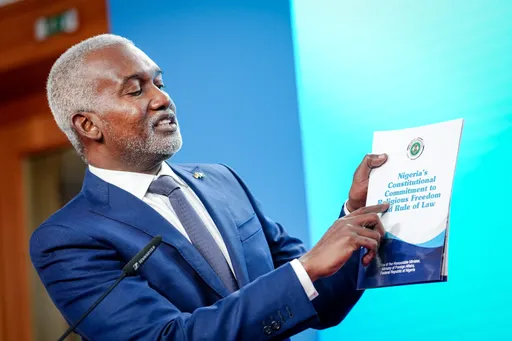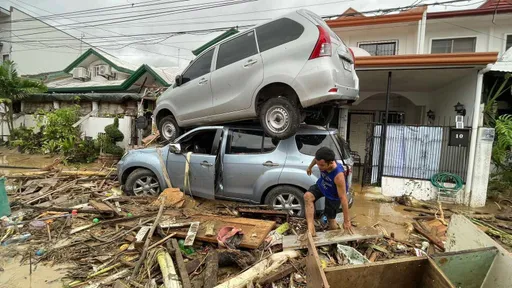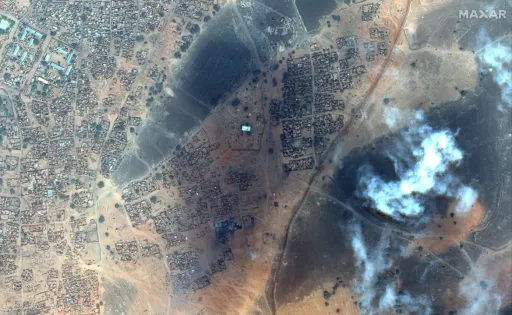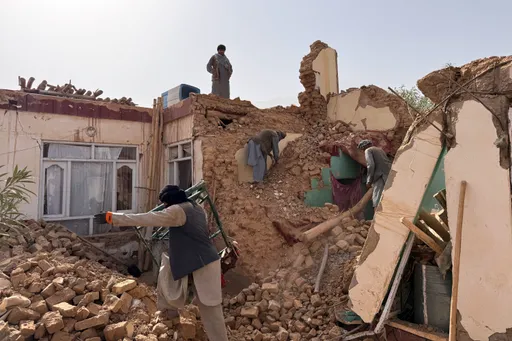Shaip Kamberi, the mayor of Serbia's municipality of Bujanovac, will start living a long-time dream if Serbia reaches an agreement to swap some of its territory with neighbouring Kosovo.
The agreement would make Kamberi's town and two other Serbian municipalities, Medvedja and Presevo, part of Kosovo - something the ethnic Albanians who predominate in the region voted for back in 1992.
"All Albanians dreamed that this will happen one day," Kamberi said. "It was never so close."
In exchange, Serbia would take over part of northern Kosovo populated mainly by Serbs. The leaders of both countries will meet on Friday in Brussels, and they're expected to discuss the proposed swap for the first time officially.

A man rests in front of the mural with text reading "It's worth dying for this country" in Mitrovica, Kosovo on September 5, 2018. (Reuters)
The idea was first floated by Serbian officials, among them the defence minister and foreign minister. Kosovo President Hashim Thaci then took it up and said he would discuss it with Serbian President Aleksandar Vucic in Brussels.
The proposal has divided the European Union. Friday's meeting will be hosted by Federica Mogherini, the European Union's foreign policy chief, who has not dismissed the idea. But German officials said it would open old wounds in a region still scarred by the ethnic conflicts in the 1990s.
In the Balkan region itself, proponents say the exchange would help resolve the conflicts between the two countries, almost 20 years after a bombing campaign by NATO helped end a Serbian war against insurgents in Kosovo, then part of its territory.
But opponents say it would validate a cause of the fighting throughout the Balkans in the 1990s -- so-called ethnic cleansing, the expulsion of populations who did not belong to the main ethnic group of the region where they happened to live.
"Of course, we will look into it properly," said an EU official who declined to be named. "We don’t want to endorse anything that could prove dysfunctional or sow any seeds of more conflict in the future. But it’s not like we would strike it down if both sides there are firmly behind an agreement."
Vucic is due to visit Kosovo this weekend to explain the implications of a potential deal to Serbs living there.
"It is important to use this momentum to reach a deal," Thaci told a civil society conference on Wednesday.

Monument of Serbian Prince Lazar Hrebeljanovic is seen in Mitrovica, Kosovo, September 5, 2018. Picture taken on September 5, 2018. (Reuters)
Hasty solutions
Serbia lost control of Kosovo in 1999, after NATO's campaign to halt the killing of ethnic Albanians in a two-year counter-insurgency war. Ten years after declaring independence, Kosovo is recognised by more than 100 states, including 22 EU members, although Serbia still claims it as part of its state.
The two countries in 2013 committed to an EU-sponsored dialogue to resolve all remaining issues, but little progress has been made since then.
The deal between the two countries is aimed at mutual recognition. It would eventually lead to Kosovo's membership in the United Nations, a move currently vetoed by Serbia's historical ally, Russia.
But an agreement would also cement "ethnic cleansing", said Father Sava Janjic of the 14th century Serbian Orthodox Church monastery Visoki Decani in Kosovo.
"Hasty solution will open a series of new problems in the same way that hasty decisions in the 1990s contributed to opening of the Pandora's box of bloody nationalist conflicts," he told Reuters in an email. "It will not stabilise the Balkans -- it will only open new wounds."

Members of the Italian KFOR peacekeeping force stand in front of the monastery of Visoki Decani, Kosovo, September 5, 2018. Picture taken on September 5, 2018. (Reuters)
Please reconsider
A group of activists calling themselves Citizens and Friends of the Balkans against Partition/Land Swap wrote an open letter warning about possible effect of the deal.
"We implore the EU, its member states, and the United States to reconsider their position on such a return to ethnification of polities and frontiers," the letter said.
Florian Bieber, one of the signatories of the letter and a Balkans expert at the University of Graz in Austria, told Reuters such an agreement could motivate Bosnian Serb nationalists to seek splitting off their region from the rest of Bosnia.
Serbs account for only four percent of Kosovo's 1.8 million population. Most of them live north of the Ibar River in an area bordering Serbia, which would go to Belgrade. But thousands would remain in southern Kosovo, in the territory to be controlled by Pristina.
"Anything that resolves the Kosovo-Serbia status dispute is a good thing," said Marko Prelec of the Central European University in Budapest.
"It could calm tension by showing that it is possible for two political leaders who have previously been sharply at odds to reach some common ground," Prelec said.









